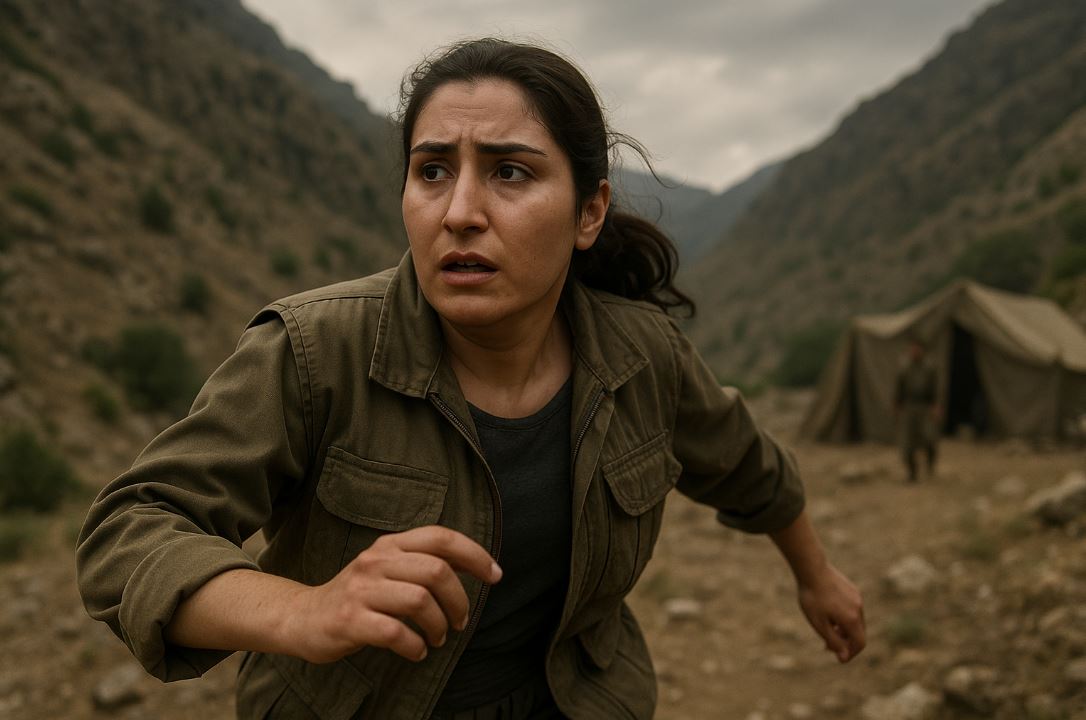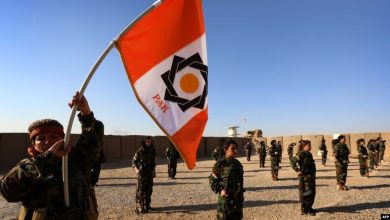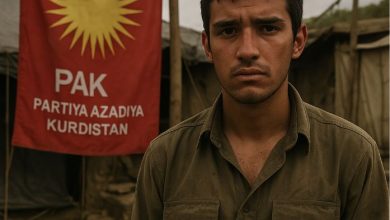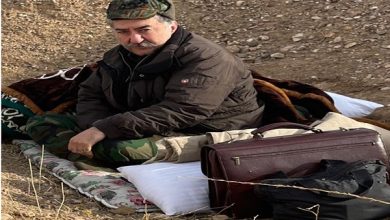Shima Kuik: “During my time with PJAK, I felt multiple times that I needed to escape. The living conditions were incredibly difficult, and I was under immense psychological pressure.”
When examining the social and psychological impacts on youth in crisis-ridden societies, it’s crucial to consider the underlying and structural factors that lead to social deviance. One such factor is family and economic hardship, which can profoundly affect the personal and social development of young individuals. In this context, the life story of Shima Kuik (organizational name: Dilan Zhavaro), a young woman who, due to family disputes and unfavorable economic conditions, dropped out of school and joined the terrorist group PJAK, offers a tangible example of these phenomena.
Research indicates that the family environment is one of the most significant factors in shaping an individual’s personality and behavior. When families grapple with economic and social crises, children and adolescents are severely affected. Dilan, experiencing loneliness and a lack of support during her childhood, sought an escape from her problems and ultimately gravitated towards armed groups. This not only highlights the failure of support systems to address the fundamental needs of young people but also underscores the identity and social challenges many youth face in vulnerable communities.
Overall, studying Dilan Zhavaro’s life can help us better understand the causes and consequences of young people joining armed groups and how family circumstances influence their choices. This study also emphasizes the importance of developing effective strategies to support at-risk youth, preventing social deviance and paving the way for a brighter future for them.
Shima Kuik, born in 1999, completed her primary education up to the sixth grade. Due to family disputes and academic difficulties, she left home on September 6, 2016, and joined PJAK. After completing her training, she spent some time at the Penjwin headquarters and a short period in Qandil before being deployed to the Badinan region for the remainder of her time with the armed cult. Ms. Kuik attempted to escape once during her time with PJAK but was apprehended by the group members and imprisoned for three months. In September 2021, she made another attempt to escape the group and surrendered to Turkish forces, who eventually handed her over to Iranian border guards via the Khoy border in West Azerbaijan Province. She is currently married with one child.
Question: Please tell us a little about yourself. Where were you born, and what circumstances led you to join PJAK?
Shima Kuik: I was born in Sarvabad County, Kurdistan Province. My childhood was very difficult. My family lived in poor economic conditions, and there were also family disputes. This situation led me to distance myself from the family environment very early on and seek a way to escape my problems. I studied until the sixth grade of primary school, but due to academic problems and lack of support, I couldn’t continue. Also, because of constant conflicts within the family, I felt intensely lonely, and these emotional conditions put a lot of pressure on me.
Question: How did these family and academic problems lead to your membership in PJAK? Was there a specific person or group that recruited you?
Shima Kuik: Just when I felt there was no way to escape my problems, PJAK members came to our village and spoke with the youth. They promoted ideas of freedom, equality, and social justice with promises. They told me that in their group, no one would oppress another, and everyone would help each other. They spoke of their lives in the mountains, and being disillusioned with my own life, I saw these promises as a path to liberation from my troubles. I felt that perhaps by joining them, I could find what I had lost in my life. That’s how I decided to go with them.
Question: How old were you when you joined PJAK? Looking back now, do you think the decision you made was the right one?
Shima Kuik: I joined PJAK on September 6, 2016, when I was only 17 years and one month old. Now that I look back, I realize that I didn’t have a proper understanding of the circumstances and consequences of joining such a group. The truth is, I was by no means ready for this decision, and I was very young. At that time, I truly didn’t know that I was entering a violent and dangerous cycle, and I didn’t know that, in reality, nothing but deception awaited me.
Question: What attracted you to this group? Did you feel a sense of freedom at that time?
Shima Kuik: Most of all, the promises of freedom and equality attracted me. They told me that in this group, no one was superior to another, and women had complete freedom there, unlike other societies where women are always subjugated and oppressed. As a young girl from a traditional and closed environment, always under family and social pressures, these words held an appeal for me. I thought I might be able to escape this situation and achieve a different life.
Question: After you decided to join, how did things unfold? Where did you go, and what training were you given?
Shima Kuik: After deciding to join, I crossed the border with PJAK members and went to the city of Penjwin in Iraqi Kurdistan. There, I underwent various training courses. The first course I participated in was ideological training, where they explained the group’s theories and their war philosophy. After that, I was sent to the Badinan region for military training. These courses were very difficult for me, as I had no experience in war or combat. But what bothered me most was the lack of suitable living conditions and poor hygiene.
Question: During your time with the PJAK group, what were your feelings? Were there moments when you wanted to leave the group or escape?
Shima Kuik: Yes, during my time with PJAK, I felt multiple times that I needed to escape. The living conditions were incredibly difficult, and I was under immense psychological pressure. One of the hardest parts was being confined in the mountains and having no contact with the outside world. However, if anyone in the group intended to leave, they were immediately branded a traitor and had to face severe consequences. But I confided in one of my close friends, a commander named Nozhin, and told her I was exhausted. She sympathized with me to some extent but always emphasized that there was nowhere we could escape our problems.
Question: When did you first decide to escape, and how did you do it?
Shima Kuik: The first time I decided to escape, I was very scared. I was afraid that if I escaped, I would be insulted or even tortured. But I couldn’t take it anymore. I missed my family and had no hope of conditions changing. Finally, one night while I was on guard, I found an opportunity and quickly escaped. I reached a nearby village and identified myself to Turkish forces. After a few days in Turkish custody, I was eventually handed over to Iranian forces via the Khoy border in West Azerbaijan Province.
Question: What happened to you after returning to Iran?
Shima Kuik: After returning to Iran, contrary to what we were told in PJAK—that we would be imprisoned and tortured upon our return—nothing of the sort happened. They just asked me a few questions, and then I easily returned to my previous life. I am now married and have one child. I live with my family in Marivan and am a homemaker.
Question: Looking back now, how do you feel, and what message do you have for teenagers in a similar situation to yours?
Shima Kuik: I truly don’t think anyone would want to go to a place like PJAK. I was under a lot of pressure at that age, and the decision I made might seem wrong to many, but in reality, at that time, I had no precise understanding of the consequences of my choices. My message to teenagers is that before making any big decision, they should think carefully and learn from the experiences of others. No group truly delivers on the promises it makes to you. Living in peace and with family is always better than war and conflict.






